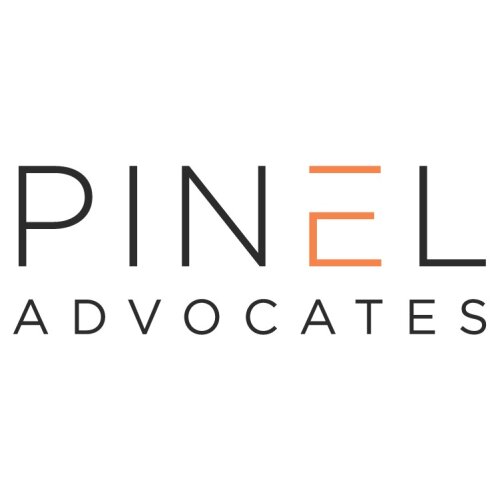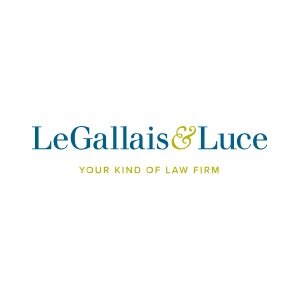Best Renewable & Alternative Energy Lawyers in Jersey
Share your needs with us, get contacted by law firms.
Free. Takes 2 min.
Or refine your search by selecting a city:
List of the best lawyers in Jersey
About Renewable & Alternative Energy Law in Jersey
Renewable and alternative energy law in Jersey is a developing field focusing on the legal frameworks that govern the production, distribution, and use of energy from sustainable sources such as wind, solar, tidal, and biomass. As an island, Jersey has unique energy needs and significant opportunities for harnessing renewable resources, which has prompted the Government of Jersey to encourage a transition towards cleaner energy. Legislation and regulation in this area aim to reduce carbon emissions, promote energy efficiency, and create a secure, sustainable energy future for the island. Legal issues commonly arise around planning permissions, grid access, incentives or subsidies, contracts, and environmental compliance for renewable projects.
Why You May Need a Lawyer
There are several scenarios where individuals and businesses may require legal assistance related to renewable and alternative energy in Jersey:
- Setting up renewable energy projects such as solar panels, wind turbines, or tidal power installations
- Navigating complex planning or environmental regulations
- Negotiating and drafting contracts with energy suppliers or technology providers
- Securing funding or government incentives for renewable energy projects
- Resolving disputes over land use, grid access, or compensation
- Understanding your obligations as an energy producer or consumer under local law
- Ensuring compliance with health, safety, and environmental standards
- Advising on the purchase or lease of property for renewable energy uses
Local Laws Overview
Jersey’s approach to renewable and alternative energy is shaped by a combination of local legislation, government policies, and international obligations. Key aspects include:
- Planning and Building (Jersey) Law 2002 - Regulates the development and use of land, including permissions required for renewable installations
- Energy Plan: Pathway 2050 - The Government of Jersey’s strategic document outlining long-term ambitions for carbon reduction and clean energy
- Environmental Protection - There are strict standards designed to avoid adverse impacts on habitats, wildlife, and the marine environment, particularly for offshore energy projects
- Electricity (Jersey) Law 1937 and amendments - Governs the supply and distribution of electricity, including licensing issues relevant to new market entrants and self-generating entities
- Renewable Energy Incentives - At times, grants, rebates, or other incentives may be available for residential and commercial installations
- Grid Connection Regulations - Outlines requirements for connecting renewable energy systems to the local electricity grid
Navigating these laws can be complex, especially given the rapid pace of technological advancement and evolving policy landscape.
Frequently Asked Questions
What types of renewable energy are commonly used in Jersey?
The most prominent renewable sources in Jersey include solar photovoltaic panels, offshore wind, tidal energy, and, to a lesser extent, biomass. Solar is particularly popular for residential and commercial applications.
Do I need planning permission to install solar panels or a wind turbine?
Most renewable energy installations in Jersey require planning permission under the Planning and Building (Jersey) Law 2002, especially if the system will alter the appearance of a property or impact neighboring land.
Are there any government grants or incentives for renewable energy?
Jersey has periodically offered incentives or grants for renewable energy installations, especially those that promote energy efficiency and carbon reduction. These programs are subject to change and it is advised to check with the Government of Jersey for current offerings.
How can I connect my renewable energy system to the grid?
Connection to the electricity grid is regulated and requires an application to the relevant electricity provider, compliance with technical standards, and potentially approval from the States of Jersey. Legal advice can help in preparing documentation and understanding connection charges or agreements.
Can I sell excess electricity I generate back to the grid?
This is possible under certain conditions, subject to agreement with the grid operator and compliance with relevant regulations. There may be specific requirements or limitations on the amount of electricity that can be exported.
What are my legal obligations regarding health, safety, and the environment when installing renewable systems?
Installations must comply with all health and safety regulations, as well as environmental laws aimed at protecting habitats and natural resources. Non-compliance can lead to fines or enforcement actions.
Is there a difference between renewable and alternative energy?
Renewable energy comes from sources that are naturally replenished, like solar, wind, and tidal. Alternative energy is a broader term that includes all non-conventional energy sources, some of which may not be renewable but are considered cleaner than traditional fossil fuels.
What happens if my renewable energy project affects a protected species or habitat?
There may be additional assessments and permits required, and potential restrictions placed on the project. Environmental impact assessments and consultations with relevant authorities are often necessary.
Do commercial-scale projects face different rules than residential projects?
Yes, commercial or utility-scale installations typically have more stringent planning, grid connection, and environmental compliance requirements due to their larger scale and potential impact.
What should I do if I have a dispute with an installer, supplier, or neighbor over a renewable energy system?
Disputes can arise over issues like installation defects, contract terms, or property boundaries. Legal advice is recommended to resolve these matters efficiently, whether through negotiation, mediation, or formal legal action.
Additional Resources
Several local and international organizations can provide valuable information and support for those interested in renewable and alternative energy in Jersey:
- Government of Jersey - Environment and Infrastructure Department
- Jersey Electricity - Information on grid connections and renewable integration
- Jersey Energy Forum - A platform for local energy initiatives and discussions
- Jersey Renewable Energy Taskforce - Provides policy recommendations and guidance
- Carbon Trust - Offers impartial advice on reducing carbon emissions and adopting renewables
- Local law firms with energy and environmental law expertise
Next Steps
If you need legal assistance in any aspect of renewable and alternative energy in Jersey, consider the following steps:
- Clearly identify the specific issue or questions you have
- Gather all relevant documents including contracts, planning applications, correspondence, and technical specifications
- Contact a solicitor or law firm in Jersey with expertise in renewable and environmental law
- Prepare a list of questions or concerns to discuss at your initial meeting
- Explore whether initial advice or consultations are offered at no charge or at a fixed fee
- Take note of any deadlines for applications, submissions, or appeals relating to your project
- Use the additional resources and governmental bodies referenced above for supplementary information
Seeking timely legal advice can help ensure your project is compliant, efficient, and successful, avoiding costly mistakes or delays.
Lawzana helps you find the best lawyers and law firms in Jersey through a curated and pre-screened list of qualified legal professionals. Our platform offers rankings and detailed profiles of attorneys and law firms, allowing you to compare based on practice areas, including Renewable & Alternative Energy, experience, and client feedback.
Each profile includes a description of the firm's areas of practice, client reviews, team members and partners, year of establishment, spoken languages, office locations, contact information, social media presence, and any published articles or resources. Most firms on our platform speak English and are experienced in both local and international legal matters.
Get a quote from top-rated law firms in Jersey — quickly, securely, and without unnecessary hassle.
Disclaimer:
The information provided on this page is for general informational purposes only and does not constitute legal advice. While we strive to ensure the accuracy and relevance of the content, legal information may change over time, and interpretations of the law can vary. You should always consult with a qualified legal professional for advice specific to your situation.
We disclaim all liability for actions taken or not taken based on the content of this page. If you believe any information is incorrect or outdated, please contact us, and we will review and update it where appropriate.
Browse renewable & alternative energy law firms by city in Jersey
Refine your search by selecting a city.










